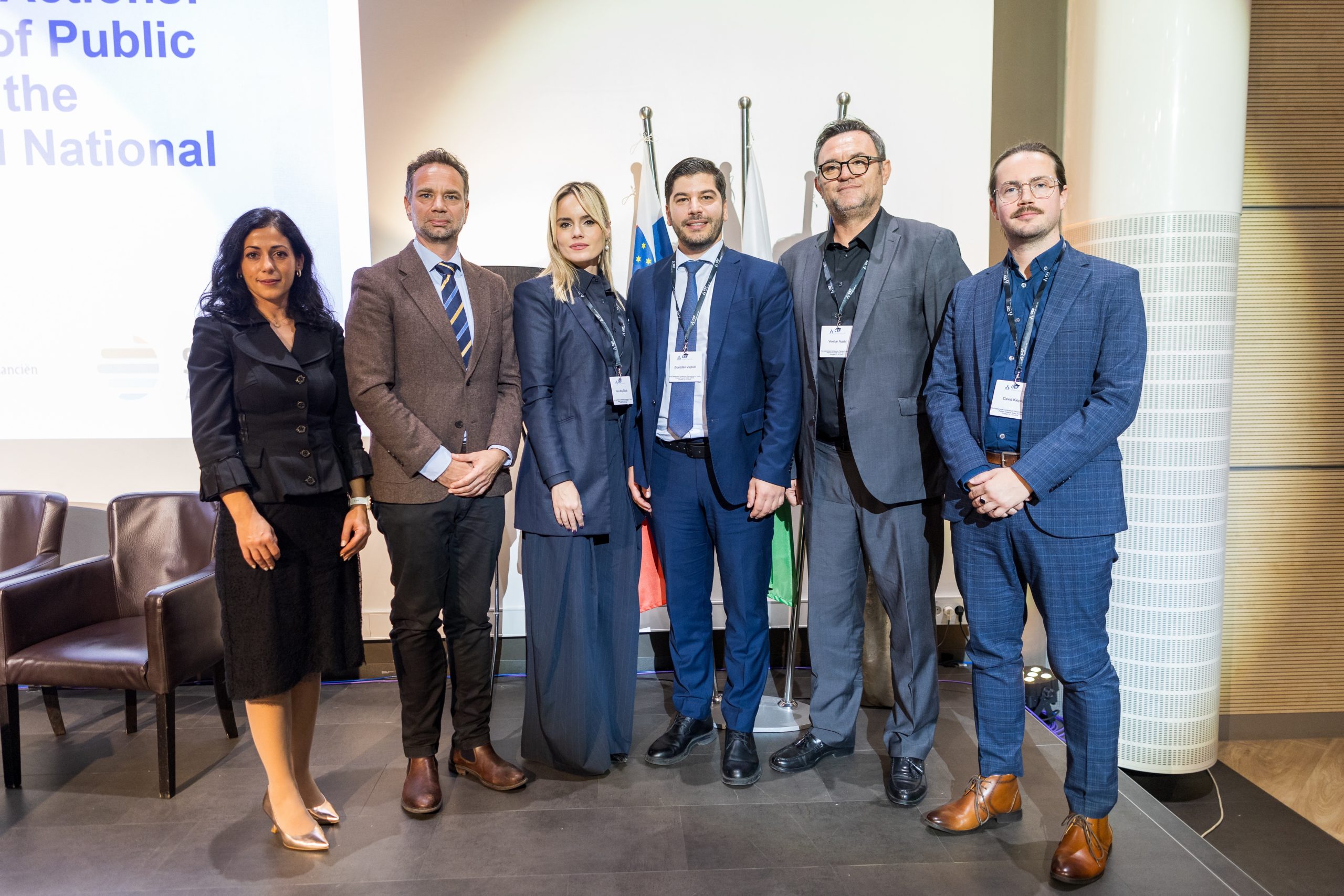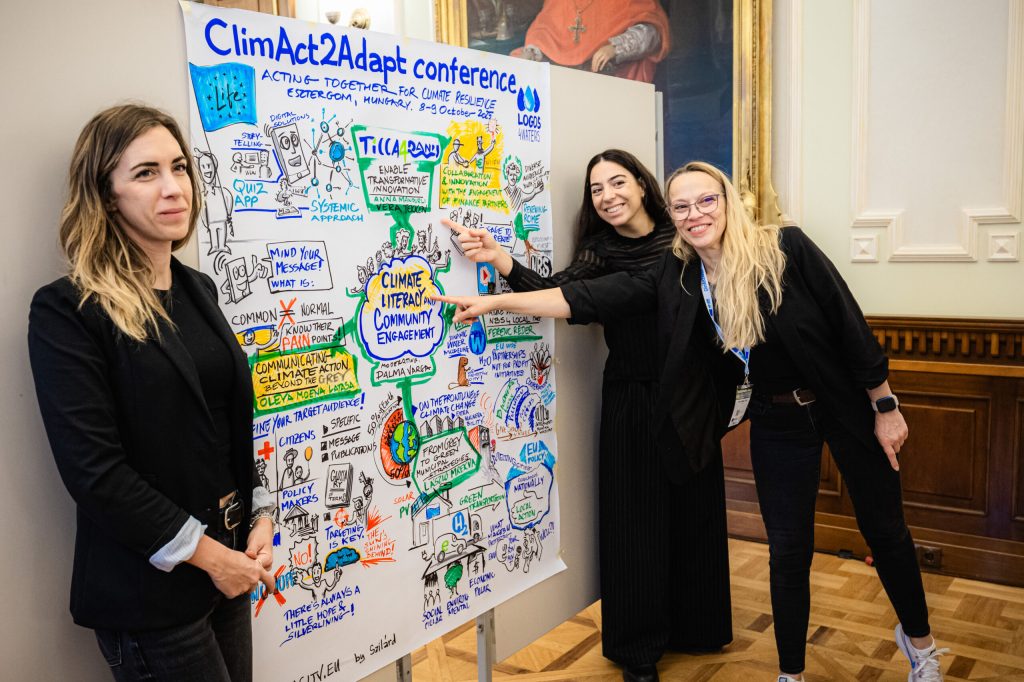

© ClimAct2Adapt
On 8–9 October 2025, the ClimAct2Adapt Conference took place in Esztergom, Hungary. The international event was organised within the framework of the EU-funded LIFE LOGOS 4 WATERS project, entitled “In cooperation for climate-conscious river basin management,” launched in 2021.
The conference served as a knowledge exchange and cooperation platform, bringing together policymakers, researchers, practitioners, municipalities, and civil society representatives to explore key aspects of climate adaptation, sustainable water management, nature-based solutions, and community-driven environmental resilience.
By blending scientific knowledge with practical experience and policy perspectives, ClimAct2Adapt aimed to inspire innovative, cross-disciplinary solutions that advance climate resilience across Europe.
The TiCCA4DANU project partners — VDI/VDE-IT, CMCC, and EDC Debrecen — participated in the conference with an oral presentation titled “Enabling Transformative Innovation for Climate Adaptation: Tools and Approaches in the Danube Region.”
The presentation highlighted existing approaches, methodologies, and tools for climate change adaptation, and explored how they can be enhanced and customised to enable transformative innovation, foster community engagement, raise awareness, strengthen climate literacy, and develop innovative financing approaches to support sustainable adaptation measures across the Danube Macro-Region.
Impressions and Takeaways from the Conference
In his opening speech, László Sitányi, Director of Operations at the Blue Planet Climate Protection Foundation, emphasised that “we need innovation and innovative practices, linked to an urgent focus on participation and engagement, social ownership, and capacity building.”
This resonates strongly with the TiCCA4DANU mission — to experiment with and operationalise place-based transformative innovation theory applied to climate change adaptation, through a transdisciplinary, inclusive, and multi-stakeholder approach.
Many keynote speakers highlighted the importance of cooperation and transboundary management of water resources to address the pressing challenges posed by climate change.
There was a strong recognition that sustainable water management is a critical driver of economic growth and human well-being, and that climate change requires anticipatory planning extending beyond the water sector to include regional planning, construction, infrastructure, and other interconnected domains.
Speakers discussed that strengthening local water governance through the active involvement of municipalities, regional authorities, and stakeholders is essential for effectively planning, implementing, and monitoring climate adaptation measures.
There was consensus that innovative financing approaches — such as public-private partnerships, ecosystem service valuation, and cost-benefit analyses — are necessary to secure sustainable investments in nature-based climate adaptation solutions. It was emphasised that there is still a significant need to move beyond public funding and grants, and to develop long-term business models ensuring continued financing of adaptation measures.
Debrecen Context
The city of Debrecen has been struggling with water shortages for decades, while heavy rainfall and flash floods are becoming increasingly common. Thus, the city simultaneously faces water scarcity and flooding risks caused by climate change.
Addressing — and above all, preventing — these climate risks plays a key role in improving water retention.
Located in the heart of the Great Plain, Debrecen is considered lowland, which makes it particularly interesting to see nature-based solutions successfully applied in areas with similar conditions through the LIFE LOGOS 4 WATERS project.
The comprehensive stakeholder engagement achieved by Hungarian experts working together was also exemplary. It is already a major achievement that experts from diverse disciplines and sectors could sit at the same table to pursue a shared goal.
Water management does not stop at national borders — nor at city limits — meaning that local actions have regional implications and impacts.
The creation of a local water working group involving numerous stakeholders, established through a community initiative, serves as an excellent example of how to achieve long-term cooperation and bring successful projects to life.

© ClimAct2Adapt
➡️ Read more: https://climact2adapt.uni-nke.hu